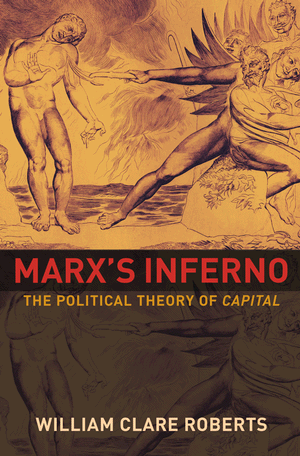Here are the comments I delivered yesterday as part of the Cohen symposium:
Analysis Terminated? Towards a Post-Analytical Marxism
Or: What Can Bullshit Marxists Learn from G. A. Cohen?
I never encountered Jerry Cohen, the man. I only knew G. A. Cohen, the author of important and influential books and essays in analytical Marxism. Jerry Cohen, so I’m told, was playful, funny, kind, and generous. The G. A. Cohen I knew was dead serious – if also capable of wit – harsh in his judgments, and quite intimidating. He was also incredibly sharp and really knew his way around Marx. I read his work – everything relevant to the study of Marx, that is – when I was in Amsterdam working on my dissertation on Marx’s concepts of labor. I found some of it helpful for my project, much of it ever so slightly disagreeable, and all of it rather less enticing than the Althusser I was reading at the same time. Nonetheless, even in my youth I recognized that Karl Marx’s Theory of History was the most formidable exposition of that other kind of Marxism, the attempt to make sense of Marx in the terms and by the conventions of Anglo-American academic philosophy and social science. I took Cohen much more seriously as a Marxologist than I did Jon Elster, for instance (indeed, footnote references to Elster in my dissertation included a parenthetical “sic!” after the title of his book, Making Sense of Marx). It was quite apparent to me that Cohen was seeking to clarify what Marx wrote precisely because he was convinced that, in rough outline at least, Marx was right: right about history, right about society, right about capitalism and the need to overcome it. His was not my kind of Marxism, but it seemed to me an intellectually honest, respectable, and challenging kind of Marxism, nonetheless.
I don’t think Cohen would have had the same judgment of me. In the introduction to the 2000 edition of Marx’s Theory of History, Cohen recollected that “before others taught me to call what we were doing ‘analytical Marxism,’ it was my own practice to call it ‘non-bullshit Marxism’” (KMTH, xxv). He admits that the term is “aggressive,” since “when you call what you do non-bullshit Marxism, you seem to imply that all other Marxism is bullshit.” He seems for a moment to undercut this aggressiveness by conceding that “there exists Marxism which is neither analytical nor bullshit,” but this concession has a sting in its tail, for he concludes by naming this non-analytical, non-bullshit Marxism “pre-analytical Marxism,” and declaring that whenever “pre-analytical Marxism encounters analytical Marxism, then it must either become analytical or become bullshit” (KMTH, xxv-xxvi). Since my Marxism encountered Cohen’s analytical Marxism in 2003, and did not, after that encounter, become analytical, then it seems that I have been, for the last six years or so, a bullshit Marxist. Hence, the alternate title for this talk. Since I nonetheless find much to respect and value in Cohen’s work on Marx, I want to press his definition of and commitment to analysis, and to see whether or not it makes sense to proclaim myself – not to mention numerous others who are similarly situated vis-à-vis Marxist theory – a post-analytical Marxist.
To that end, I want to do what Cohen claimed in 2000 he and his fellow analytical Marxists never did, put analysis in question. The first task will be to get clear on just what analysis is, on Cohen’s account. It has both a broad and a narrow sense, and I will proceed to challenge each sense, beginning with the narrow one, anti-holism. I will argue that, in the narrow sense defined by Cohen, analytical Marxism is not actually analytical. That is, it is committed to a certain sort of holism. Then I’ll move on to discuss the broader sense of analysis, which is opposed to “dialectical reasoning,” something Cohen does not actually think exists. In other words, Cohen takes analysis to be identical to reasoning as such. I think there are good reasons for resisting this view, and that Marxists in particular ought to be wary of it. In order to show why this is so, I will enter into the realm of Cohen’s Marx interpretation. I think that Cohen makes a number of observations about Marx and Marx’s project that can actually be read as motivations for a post-analytical Marxism.

